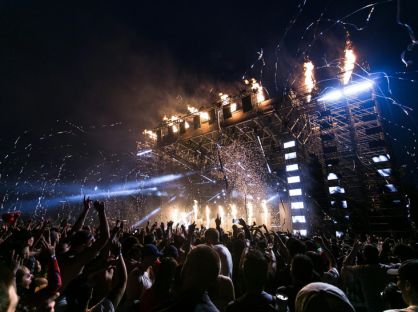From music festivals and stadium concerts to large celebrations and televised broadcasts, live events carry both the thrill of the moment and the responsibility to keep thousands of people safe. Recent high-profile incidents have exposed just how vulnerable large gatherings can be when security plans are rushed, under-resourced, or unclear.
What We’re Learning from Recent Incidents
-
Kansas City Chiefs Parade Shooting (February 2024):
Despite the presence of over 800 law enforcement officers, a shooting during the Super Bowl victory parade left one dead and more than 20 injured. The attack exposed how difficult it can be to respond in real time when security responsibilities are spread thin or overly reliant on public agencies. -
Bengaluru Stampede During Victory Event (June 2025):
An unsanctioned IPL fan celebration in India turned deadly when organizers pushed forward without proper security clearance. Crowd control collapsed under the pressure of thousands of attendees, resulting in fatalities that could have been avoided with structured ingress and egress planning. -
Thwarted Concert Terror Plot in Vienna (August 2024):
A planned mass-casualty attack at a Taylor Swift concert was foiled thanks to early intelligence and private-sector coordination. It demonstrated how forward-looking planning and independent risk mitigation can stop threats before they escalate.
Each of these cases carries the same underlying truth: security at public events cannot be outsourced entirely to police or repurposed venue staff.
Why Event Producers Need Dedicated Security Partners
It’s increasingly critical for production teams, tour managers, and event planners to retain their own licensed, insured, and specialized private security personnel – guards who are embedded in the operation from the start and are accountable directly to the client.
Here’s why:
-
Law Enforcement is Not a Substitute
Police are often spread across citywide coverage and cannot adapt quickly to event-specific needs. A private security team works exclusively for the event, focused on known risks and key vulnerabilities. -
Venue Security is Limited to Their Premises
Many venues cover only their immediate footprint. Your production likely needs perimeter sweeps, back-of-house protection, and coverage for VIP movement, staging areas, and crowd overflow zones. -
You Need Guards Who Know Your Plan
Private security contracted directly by the event team is briefed on run-of-show, artist movements, production timelines, and risk factors like crowd surges or social media threats. They don’t just stand by – they integrate. -
Shared Accountability Means Clearer Communication
With a third-party provider like Poseidon Security Group, you get direct control, real-time communication, and a unified chain of command — critical when minutes matter.
What an Effective Security Strategy Looks Like
For large events like stadium concerts, festivals, or televised productions, the right security plan includes:
-
A site-specific security assessment and Facility Security Plan
-
Guard placement mapped to risk, not just space
-
Clear coverage of artist, VIP, and asset movement
-
Crowd control with layered ingress and egress planning
-
Emergency response scenarios practiced and delegated
Looking Ahead
As we head into another high-profile season of events across South Florida, the stakes are only rising. At large venues like stadiums and arenas, where tens of thousands converge for just a brief moment, the margin for error is razor-thin.
Smart producers are already locking in specialized security partners, not just to respond to threats, but to help neutralize them entirely through preparation, visibility, and alignment.
Chris Pordon
Poseidon Security Group

